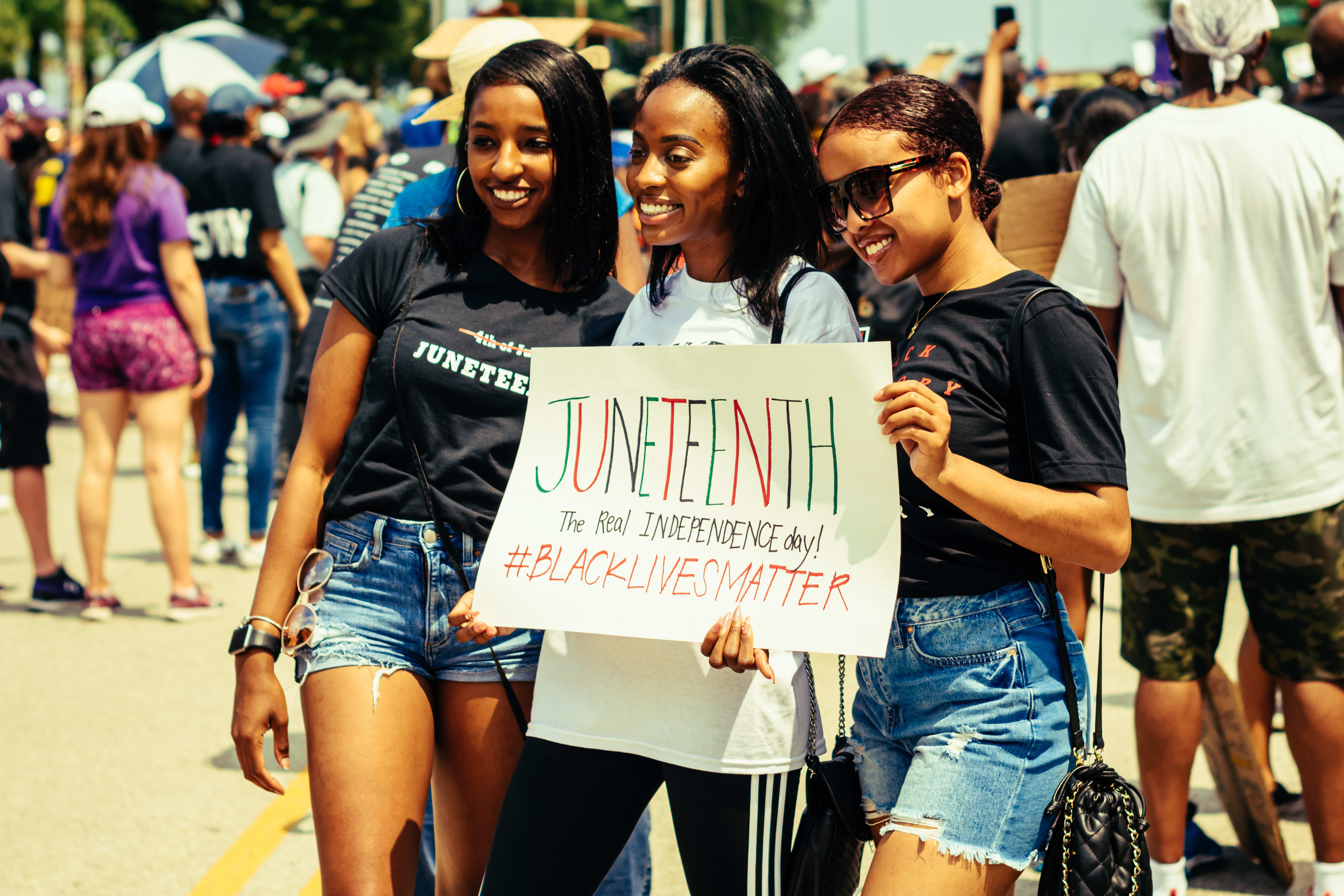Civil Rights Attorney Victor McTeer on the Power of Serving Underrepresented Communities
This article is part of the series In Their Own Words, proudly presented by Gulf Coast Community Foundation.

Image: Michael Kinsey
An only child who was born and raised in Baltimore, preeminent civil rights attorney Victor McTeer entered Western Maryland College (now McDaniel College) at just 16 years old on a Maryland Senatorial scholarship. In 1969, he became one of the first Black people to graduate from the nearly all-white conservative school.
The summer after graduation, with his new political science degree in hand, McTeer moved to the Mississippi Delta, one of the poorest areas of the country, where he volunteered to teach civics to former Black sharecroppers who had been evicted from their homes for attempting to register to vote. That experience inspired him to go to law school so he could fight for victims of discrimination in the region.
In 1972, after graduating from Rutgers Law School and clerking for the Center for Constitutional Rights in New York, McTeer and his wife Dee Dee moved to Mound Bayou, Mississippi. That's where McTeer filed his first case on behalf of Katie Mae Andrews, who had been denied employment by the Drew Municipal Separate School District because she was an unwed mother. No one else wanted to take the case, and after three years of litigation, it wound up going to the U.S. Supreme Court, where McTeer and Andrews prevailed. McTeer was just 27 years old.
The Andrews case set McTeer’s professional life in motion. Over the course of his 38-year career, he represented both plaintiffs and defendants, a rarity in the legal world. His case subjects ranged from voting rights to employment, housing discrimination and constitutional law, some of which received national attention. In 1981, he was part of a legal team that garnered a rare financial damages award against a faction of the Ku Klux Klan. He was also on the legal team representing plaintiffs in a lawsuit against a tobacco company that went on to inspire John Grisham’s book The Runaway Jury. He's received awards and recognition from the Mississippi State Chapter of the NAACP and the United Negro College Fund, among many others, and he and Dee Dee have funded scholarships and endowments benefitting students at Alcorn State University, Mississippi Valley State University, Jackson State University and McDaniel College.
McTeer, who is now 75, retired in 2007. In 2019, he relocated to Sarasota with Dee Dee, with whom he has two children. The couple is celebrating their 53rd wedding anniversary this year. This interview has been condensed and edited for clarity.
Tell us about your childhood.
“I was raised by two women after my mother passed away: my Aunt Marie and her longtime friend Evangeline.
“My father was born into a family of field hands in Richmond, Virginia. My mother was from a well-to-do family that originated in west Baltimore. In 1943, she got a job at the Pentagon just as it opened. One day, she went down to the loading dock where she met my father, who was a U.S. Army-trained truck driver. It was a whirlwind courtship, and they were married. Midway through her pregnancy with me, it was discovered that she had a brain tumor. She went blind during my delivery, and six months after my birth, she was dead.
“Marie, my mother's aunt, stepped up to care for me while my father worked. It was going well until my father died when I was about 4. When that happened, both of their families had to make a judgment on where I should live. They decided the schools in Baltimore were better, so they made a deal that I would spend my summers in Richmond with my father’s family and my school time in Baltimore with my mother. The McTeer side of the family agreed that my aunt could adopt me as long as I could see my family in Richmond whenever I wanted, and whenever they wanted me, and that's what happened. I was raised in two families.
“Some people believed that two older women couldn't raise a boy child, but they did. They were loving and caring, and I'm forever grateful.”
You went to college at just 16 years old, and it was a nearly all-white conservative school. What was that like?
“I was a schoolboy football player on full scholarship. I walked into the gym and almost nobody spoke to me. At that time, I was the only Black kid in the history of Western Maryland College to put pads on. I was used to being a big man on campus, and suddenly nobody was talking to me.
“I had to adjust and became accustomed to it. Some people ignore realities and expect you to bend to their rules, but that wasn't my style. And I wasn't giving up that scholarship.
“Over time, I found friends who understood who and what I was and how to approach me. But it was one of the toughest periods of my life because I was so young."
What other kinds of racism have you experienced?
“The intense racist experiences were when I’d wake up and find myself in the newspaper [after a case], reading that somebody had threatened to kill me. Or when, shortly after my daughter became the mayor of Greenville, Mississippi, I found out somebody threatened to kill her, too. That was the worst.
"I wish I could tell you that there weren't other instances [of racism], but I can’t. That kind of intensity is something that gives the word 'Mississippi' new meaning."
Tell us about that.
“The beauty of Mississippi is that the poor folks have a certain hardness about them—you don't realize it until you live and work with them. They are brilliant and tough-minded. I readily admit that I was not born poor, but I wasn't born rich. Still, I didn't know that kind of poverty. Mississippi Delta field hands are tough as nails.
“Some of the people I met during my first and earliest experiences there confronted my elitism—my feeling that I was all that and a bag of chips. You know, [coming in and saying], 'I'm here to help y'all, really.' They looked at me like, 'You don't even know what to do when you go into town. You better stick with one of us.' This also came after four years at the all-white college.”
In 1981, you were on the legal team that won a rare monetary award against the Ku Klux Klan. What was that experience like?
“We sued the Klan after five Black women were shot at while crossing the street. One had a grandchild with her. The Klan had burned a cross close to where the shooting took place, but it didn't get the reaction it wanted because no Black folks were out there that day. So they drove around with their shotguns, and when they saw these ladies, they fired. Thankfully, the injuries were not as bad as they could have been.
“I heard about this incident not knowing that I would get a call to work with other young lawyers at the Center for Constitutional Rights, where I clerked as a law student. It was a great honor. We had a jury with one Black woman on it—we fought hard to get her. Ultimately, we were able to persuade the jury that the Klan had committed a violation of the Civil Rights Act, and they awarded the ladies $535,000.
“It was a remarkable case involving a federal judge who was astounding in his recognition of the law and his determination to follow the rule of law. We were fortunate to get that decision. But afterward, everything went haywire—we found out [the Klan] didn't have any money."
What lessons did you learn from the case?
“I've always had mixed feelings about that case. It was a great victory. An injunction was issued against the Klan to stop them from engaging in certain kinds of conduct, and the jury did exactly what it was supposed to do, too. But we never got the payment. After that trial, I never took on another case where I did not make sure that there were adequate assets to pay a judgment if we were lucky enough to get one.
"I [also learned more about] what plaintiffs go through, how they had to be prepared, how they had to be ready for cross-examination. And these were all older women who risked everything. [After the trial,] I got to go back home. Those women had to stay there. I often thought about their courage."
When you reflect on your career, what do you focus on?
“One of the things that drove me to move to Mississippi and stay there was that every day, every time I went out in the street, every time I talked to somebody, I got a sense of the wrongfulness that was going on there.
“For example, there were cases we did for Black homeowners on the Black side of town in the segregated subdivision where there weren't paved roads—whereas on the white side of town, they had nice streets with fire hydrants and drainage ditches.
“Let's imagine that you finally raise enough money for a down payment for a nice little house. If you lived in the segregated white side of town, you would have a sidewalk. But on the Black side of town, there weren't any sidewalks. One of my major pieces of litigation when I started my law firm, McTeer & Associates, was called a municipal equalization lawsuit. I wanted to make sure that Black folks had the same kind of capital improvements on their side of town as on the white side of town.
"In a place like Mississippi, you can't escape that kind of thing. It seemed like every day somebody walked in with a story you just couldn't believe. As somebody who spent four years at the white college and who was desperate to find some relevance in that college education in Mississippi, I found people who were desperate enough to need me. I was a nobody with no experience, no background, who had the chance to work on cases no one had ever seen before. I'm honored that I did exactly what I did for as long as I could.”
What would you like your white friends or acquaintances to be doing right now?
“I'm more concerned about what my Black friends are doing. The reason is because I want to deal with things I can control, that I can be a part of, and that I can join without the concern of racial backlash. It's about opening the door to relationships with other Black folks and a willingness to take on challenges that can only be pursued by joint action. A lot of us spend time trying to reach out to people who don't want to hear us.
“I also believe that connecting to people who look like you, who sound like you, who love the same things, who don't question your motives because of something that you aren't even thinking about is a refreshing step in the right direction.
“I've had enough experience to know that many of us—and I'm talking about all kinds of Americans—don't feel blessed to be here. Well, we are, no matter how we got here. Perhaps together we can learn more about this America that other people claim exists."
"Listening to Black Voices" is a series created by Heather Dunhill.




